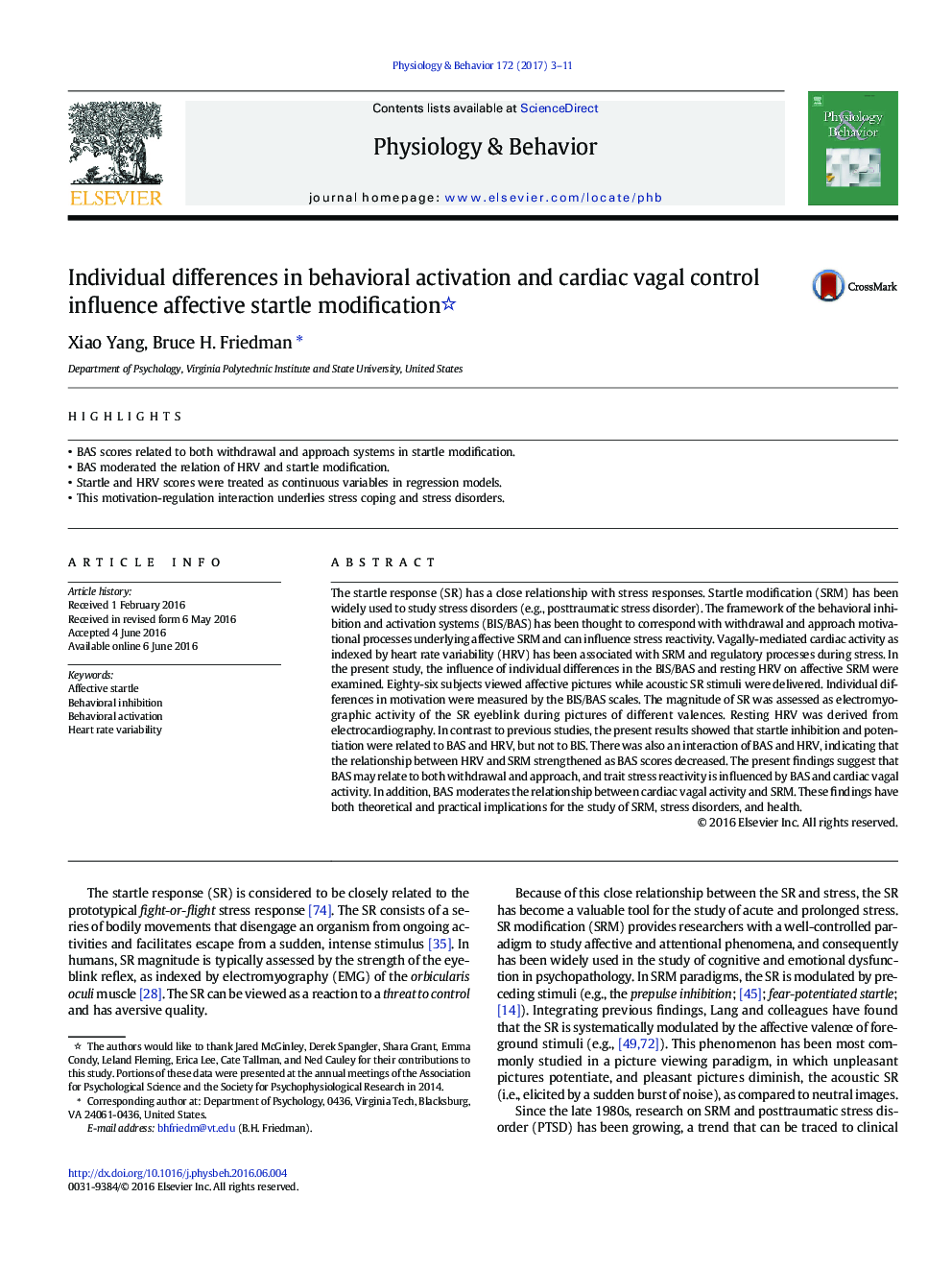| Article ID | Journal | Published Year | Pages | File Type |
|---|---|---|---|---|
| 5593953 | Physiology & Behavior | 2017 | 9 Pages |
â¢BAS scores related to both withdrawal and approach systems in startle modification.â¢BAS moderated the relation of HRV and startle modification.â¢Startle and HRV scores were treated as continuous variables in regression models.â¢This motivation-regulation interaction underlies stress coping and stress disorders.
The startle response (SR) has a close relationship with stress responses. Startle modification (SRM) has been widely used to study stress disorders (e.g., posttraumatic stress disorder). The framework of the behavioral inhibition and activation systems (BIS/BAS) has been thought to correspond with withdrawal and approach motivational processes underlying affective SRM and can influence stress reactivity. Vagally-mediated cardiac activity as indexed by heart rate variability (HRV) has been associated with SRM and regulatory processes during stress. In the present study, the influence of individual differences in the BIS/BAS and resting HRV on affective SRM were examined. Eighty-six subjects viewed affective pictures while acoustic SR stimuli were delivered. Individual differences in motivation were measured by the BIS/BAS scales. The magnitude of SR was assessed as electromyographic activity of the SR eyeblink during pictures of different valences. Resting HRV was derived from electrocardiography. In contrast to previous studies, the present results showed that startle inhibition and potentiation were related to BAS and HRV, but not to BIS. There was also an interaction of BAS and HRV, indicating that the relationship between HRV and SRM strengthened as BAS scores decreased. The present findings suggest that BAS may relate to both withdrawal and approach, and trait stress reactivity is influenced by BAS and cardiac vagal activity. In addition, BAS moderates the relationship between cardiac vagal activity and SRM. These findings have both theoretical and practical implications for the study of SRM, stress disorders, and health.
